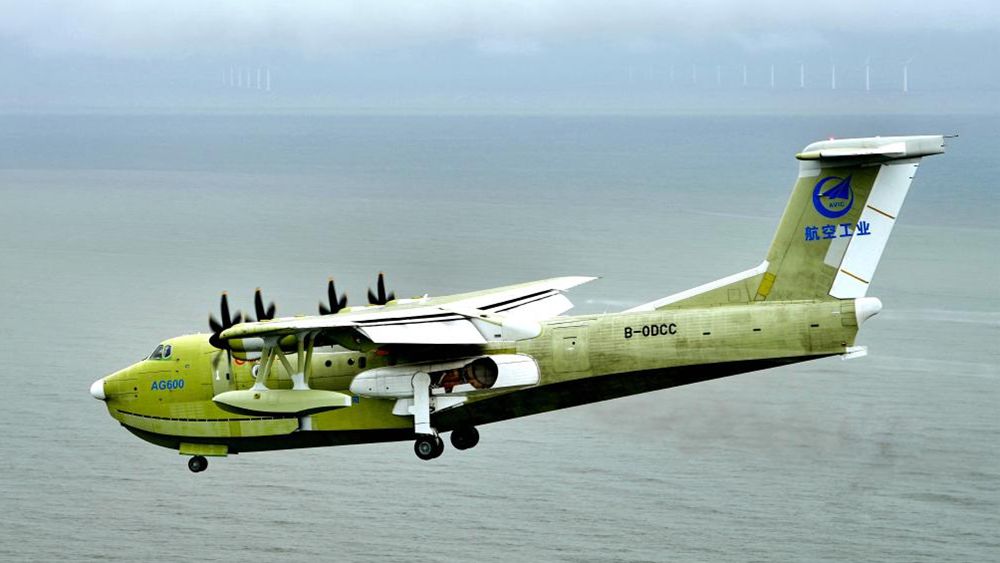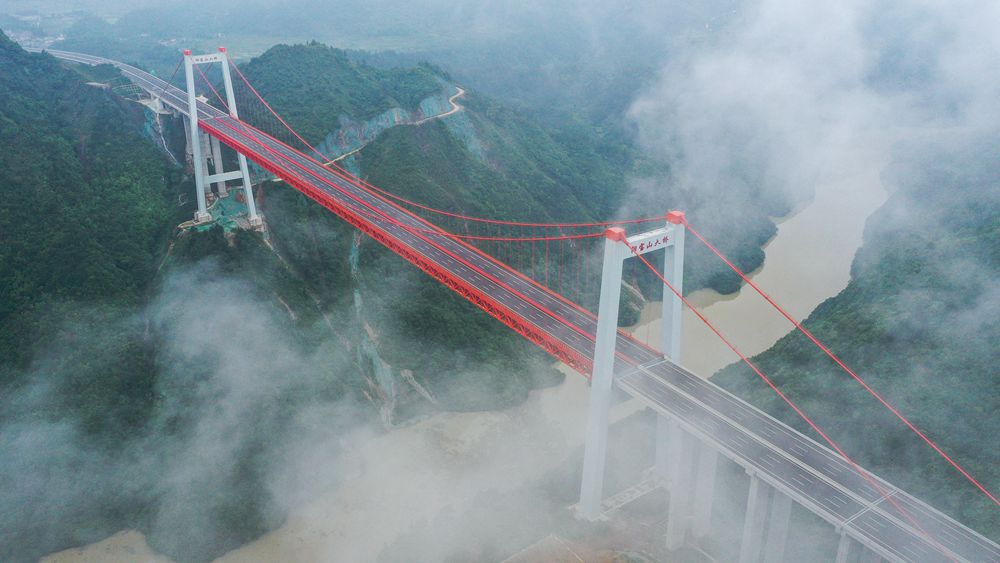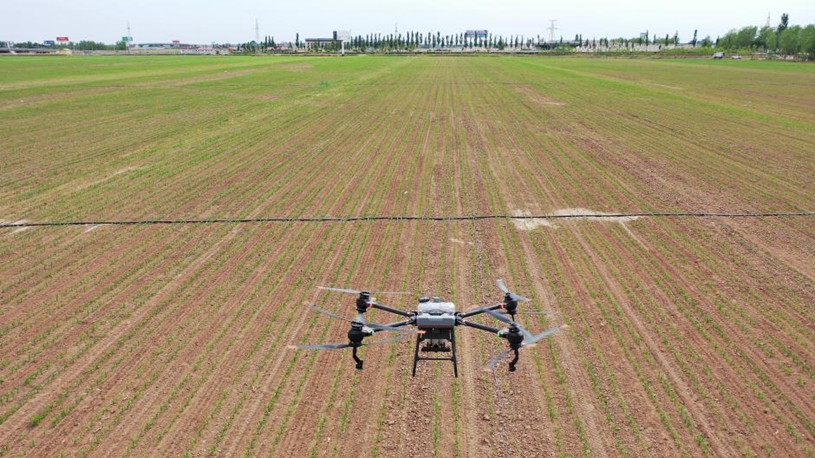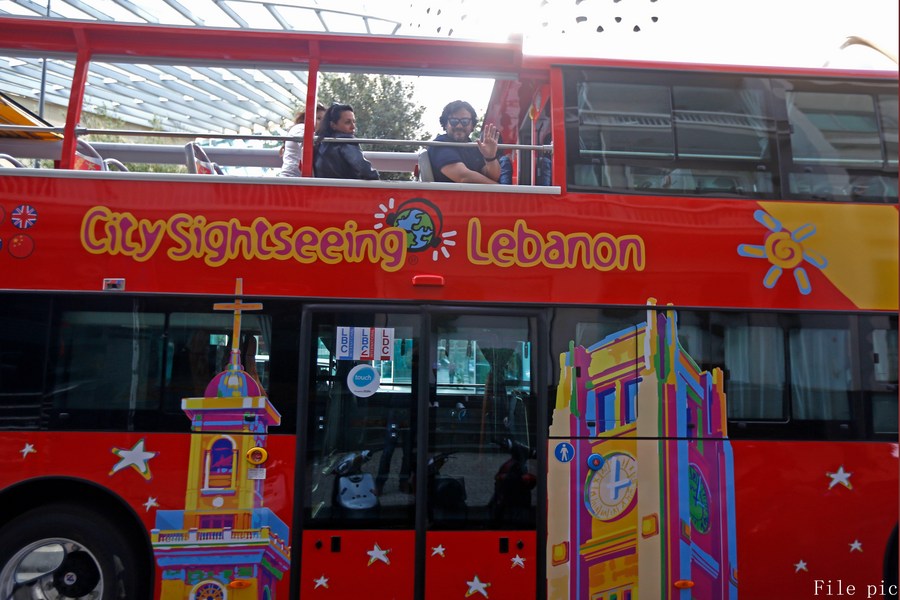
Tourists ride a red tourist bus meandering through the streets of Beirut, Lebanon on May 4, 2019. (Xinhua/Bilal Jawich)
by Dana Halawi
BEIRUT, June 5 (Xinhua) -- Shadia al-Asmar, a student in her twenties, pays 150,000 Lebanese pounds (around 5.3 U.S. dollars) a day sharing a cab for her roundtrip to university, which locates about 40 kilometers away from her house.
"The transportation cost, which is nearly equivalent to my university tuition fees, has become unbearable for my family," she told Xinhua.
For his part, Assaad Hamed, a 30-year-old employee at a governmental department in eastern Lebanon, told Xinhua that he agreed with five of his colleagues to share a car on their way to work in a bid to reduce their cost of transportation.
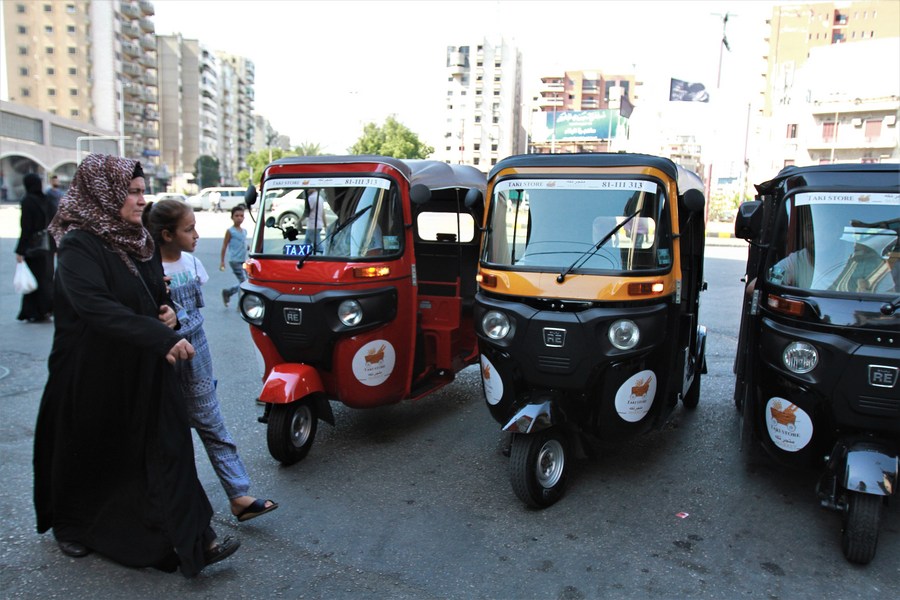
Tuk-tuks waiting for passengers in Tripoli, Lebanon, on October 8, 2021. (Photo by Khaled /Xinhua)
Lebanon has been suffering from a steep financial crisis amid shortage of U.S. dollars which hindered the imports of fuel, leading to a rise in the price of the commodity.
The crisis weighed heavily on the Lebanese who had to bear the burden of a rising transportation cost at a time when their salaries were devalued by over 90 percent due to the collapse of the local currency.
Lebanon's transportation crisis was further exacerbated by the shortage of public buses.
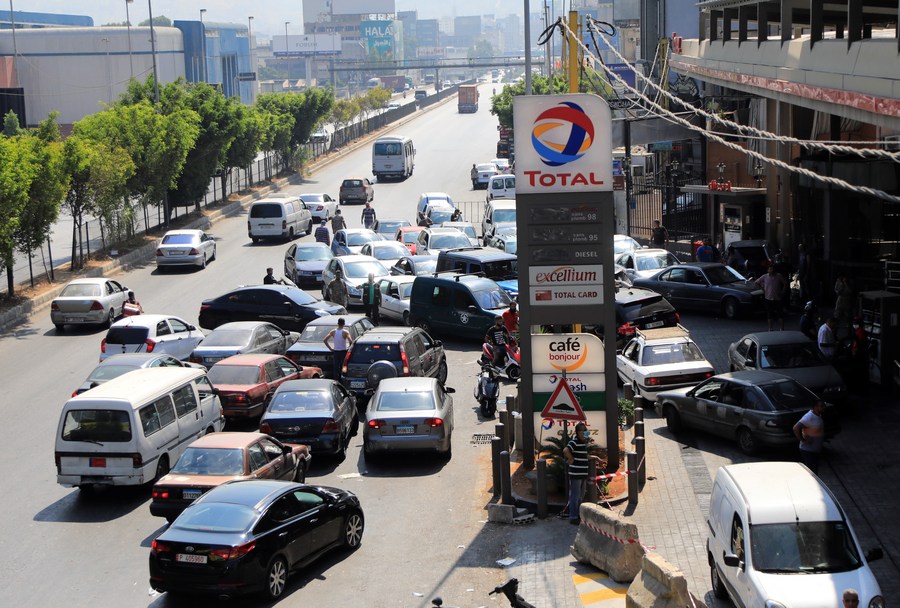
Cars gather for fuel in front of a gas station near the port of Beirut, Lebanon, on Aug. 21, 2021. Lebanon has been facing a serious shortage in fuel oil given the financial collapse in the country and its inability to secure U.S. currency to import the much-needed basic commodities. (Xinhua/Liu Zongya)
Assaad Zoughaib, the mayor of Zahle, the largest municipality in eastern Lebanon, has cooperated with the European Union (EU) by operating four EU-funded environmental friendly buses inside and around the city, in an attempt to alleviate the burden of the increasing transportation cost for citizens.
He explained that the buses, each with a capacity of 45 passengers, are operated in a Hybrid system with both electricity and Euro 6 diesel to help reduce the level of harmful pollutants.
Jihad Haddad, an engineer and specialist in automobile mechanics, told Xinhua that the new project will have a positive impact on transport amid a continuous rise in the price of fuel, whereby 20 liters of gasoline cost around 600,000 LBP, slightly lower than the minimum wage (675,000 LBP) in Lebanon.
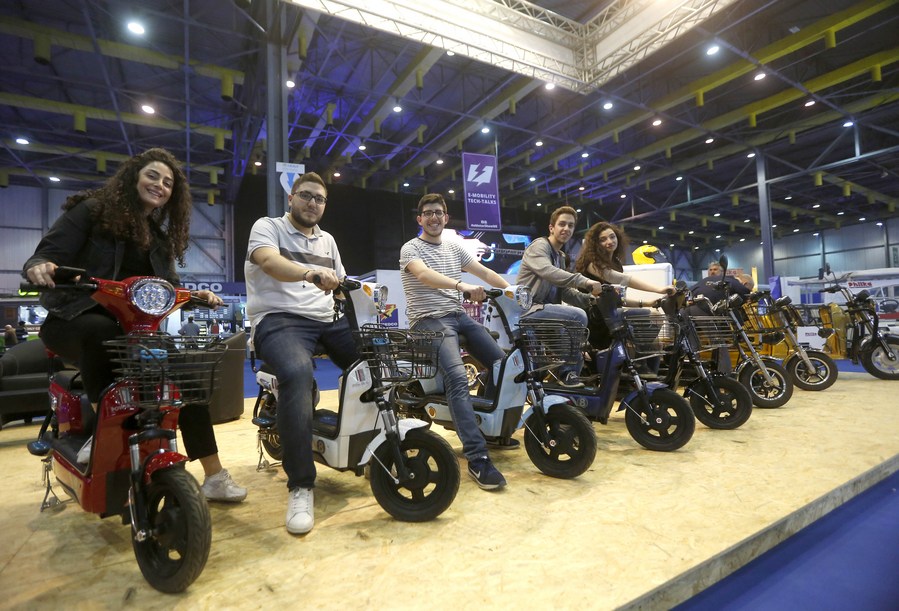
Visitors take photo with the motorcycle shown during an e-MotorShow in Beirut, Lebanon on April 11, 2019. An e-MotorShow was held in Beirut from April 11 to April 15, 2019, which is the first expo in the Middle East for the electric & hybrid vehicles. (Xinhua/Bilal Jawich)
The cost of transportation has skyrocketed. The fare of bus between the eastern and southern regions to the capital city Beirut reaches 140,000 LBP, compared to 15,000 LBP in 2019, which increased by over 800 percent; while the taxi fare for the same distance costs around 3.5 million LBP, according to Jean Zioud, director of a private passenger transport company.
"A new trend is that a large percentage of citizens today prefer using the public transportation to driving their private cars except when absolutely necessary," Zioud told Xinhua.
Lebanese Public Works and Transport Minister Ali Hamieh called late in May for unconditional support to help the country restore its public transportation facilities.
The minister also voiced a plan to create a fund to subsidize passengers by collecting donations from other countries.
In 2018, the World Bank approved a 295-million-dollars package to jumpstart Lebanon's first modern public transport system, but it was put on hold as Lebanon has been struggling since 2019. ■




